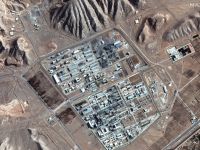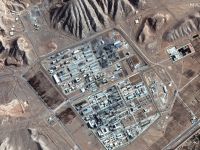The Egyptian State Council’s Administrative Court recently annulled the government’s 2006 sale of Omar Effendi to Saudi-based Anwal Group.
Criminal investigations are underway against former Finance Minister Youssef Boutros Ghali and Minister Mahmoud Mohieldin, now the World Bank’s Managing Director. The parties are accused of forcing the valuation committee to recommend the sale of Omar Effendi to Anwal for an amount that was $100 million less than the value of the company’s assets. Anwal’s Board Chairman, Jameel Al Qanbeet, says the company will appeal the ruling in Egyptian and international courts.
Omar Effendi, one of Egypt’s oldest retail companies was nationalized in 1957, with 82 outlets across Egypt. According to the government’s Trade Industries Holding Company (TIHC), the company began doing poorly in the early 1990s. In 2006, Had Fahmy, chairman of the TIHC stated, “a recent study showed that as few as 30 customers visit Omar Effendi stores each day,” and that the company suffered losses between 2000 and 2004. Only in 2005 did the company report profits totaling LE 2 million. “But for a company with assets valued at LE 1 billion, that’s a return on equity of just 0.2%. From an economic point of view, such revenues count for nothing.” The TIHC had been trying to sell Omar Effendi since 1998 but was required to turn away three prospective bidders as they failed to meet the government’s asking price and were unwilling to guarantee jobs for the company’s 6,000 employees.
Then Anwal stepped in with an initial cash offer of LE 504 million. The Minister of Investment Mahmoud Mohieldin approved what was considered to be an undervalued bid on the company. The sale occurred during a time when the Egyptian government was trying to privatize national industries. Between 1992 and 2006, the government attempted to sell 319 state-owned companies.
Public sentiment considered the offer to be far below the real value of the company. The local press accused the Ministry of creating a parallel valuation committee to come up with a lower valuation of the company. Based on these accusations, the People’s Assembly put the sale on hold while the Minister was investigated and later cleared by the nation’s anti-corruption force. In November 2006, Anwal purchased 90% of Omar Effendi for LE 589.5 million plus the transfer of debt. According to current court documents, the value of the land alone for the 82 stores was worth as much as 4 billion pounds.
Pursuant to the terms of the agreement, Anwal was required to preserve workers’ rights, pay early retirement of 1,200 employees LE50 million, invest LE 180 million to renovate several outlets, pay around LE 155 million in taxes, cover the company’s liabilities, continue using the name Omar Effendi, maintain and keep open at least 58 of the 82 current stores, and keep open those stores with architectural or historical value. Anwal was also required to infuse the company with LE 180 in upgrades and refurbishments within six years of signing the contract.
According to Fahmy, while addressing the sale in 2006, the deal "seeks to turn Omar Effendi store into CityStars or similarly attractive shopping malls. It will boost the country’s retail sector and will encourage other storeowners to develop and modernize their businesses.”
However, things don’t appear to have worked out as planned. According to the International Finance Corporation, approximately 2,600 employees were encouraged to retire, and very little development/refurbishment was done. One of the most historical stores located in Abdel Aziz (downtown Cairo) only has one floor currently open with the rest of the building not functioning at all. According to employees, stores are closing due to outstanding debts, the quality of goods has decreased, and employee checks are bouncing. In November of 2010 the company failed to pay employee salaries.
In January 2011, ownership of Omar Effendi returned to Egyptian hands. Al-Aseel, owned by Egyptian businessman Yassin Algan, bought Anwal’s stake in the company for LE235 million in addition to assuming the financial obligations totaling LE 635 million overall payment totaling LE 880 million. Algan also has a history of corruption. He was sentenced to 15 years in jail for using forged documents to obtain loans from the Commercial Bank of Daqahliya and Al-Nil Bank without collateral. The annulment should kill the deal between Algan and Anwal.
Of interest is the affect the Court’s annulment will have on foreign direct investment in Egypt. The Omar Effendi privatization sale is only one of many contracts the Egyptian Courts are now evaluating. This comes at a time when Egypt is aggressively pursuing international investment and aid to support its ailing economy. Source: yallafinance.com.







